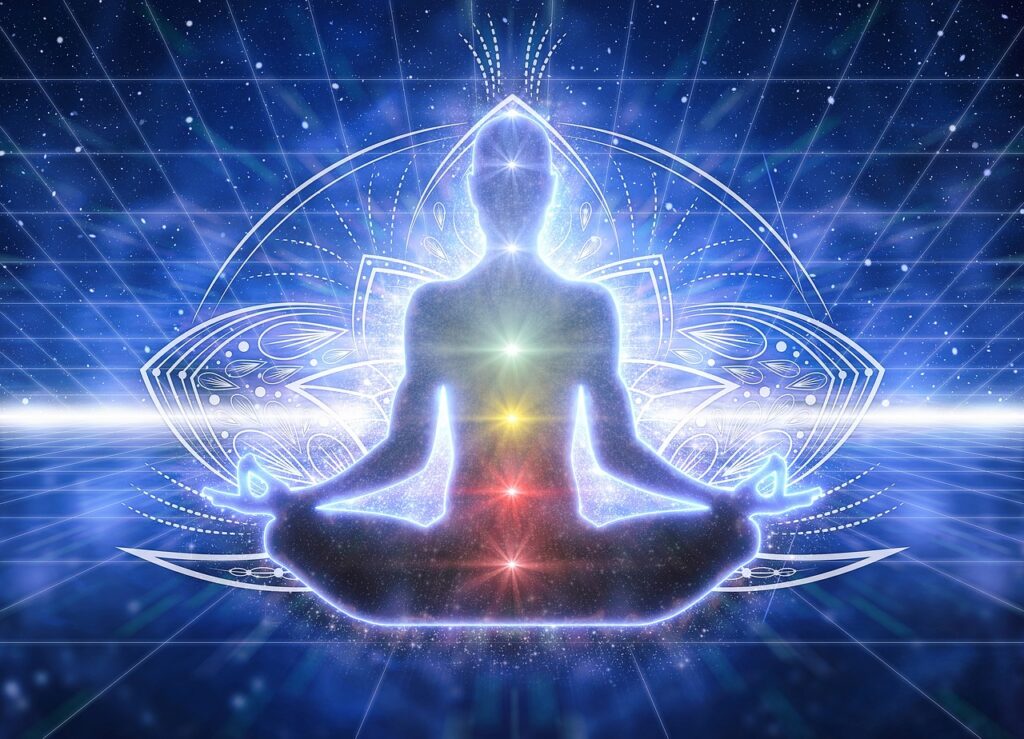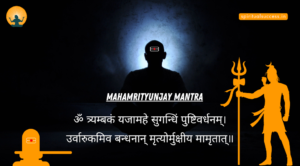Mantra Definition
A mantra is a sacred and powerful phrase, word, or sound that is repeated either silently or aloud during meditation, prayer, or spiritual practices. Derived from ancient Sanskrit, the word “mantra” can be broken down into two parts: “man,” meaning mind, and “tra,” meaning tool or instrument. Thus, a mantra can be understood as a tool for the mind.
Mantras have been used for centuries in various spiritual and religious traditions across the world, including Hinduism, Buddhism, Jainism, and Sikhism. They serve as a means of focusing and quieting the mind, channeling energy, and attaining a state of deep concentration and spiritual connection.
The power of a mantra lies in its vibrations and resonance. By repeating a mantra with intention and devotion, individuals can create a harmonious and transformative effect on their physical, mental, and spiritual being. The rhythmic repetition of a mantra helps to still the mind, purify thoughts, and transcend ordinary consciousness.
Mantras can be specific to a deity, representing divine qualities and invoking their presence, or they can be more general in nature, focusing on aspects such as peace, healing, love, or enlightenment. They can be chanted aloud, whispered, or recited silently, depending on personal preference and the intended purpose.
The repetition of a mantra creates a sacred space within, enabling individuals to connect with their innermost self and the divine. It serves as a spiritual anchor, helping to bring focus, clarity, and a sense of inner peace. Mantras can also be used as tools for manifestation, self-affirmation, and transformation, empowering individuals to align their thoughts and intentions with their desired outcomes.
In summary, a mantra is a sacred phrase or sound that is repeated with intention and reverence, serving as a powerful tool for the mind and spirit. Its practice allows individuals to deepen their spiritual connection, achieve inner stillness, and tap into their inherent wisdom and divine nature.

What is the benefit of chanting a Mantra
Chanting a mantra offers a wide range of benefits that can positively impact our physical, mental, emotional, and spiritual well-being. Here are some of the key benefits of regularly chanting a mantra:
- Deepens Meditation and Mindfulness: Mantra chanting is an effective way to deepen meditation and cultivate mindfulness. By focusing on the rhythmic repetition of a mantra, the mind becomes more centered and calm, allowing for a deeper state of inner stillness and heightened awareness.
- Reduces Stress and Anxiety: Chanting a mantra has a soothing effect on the nervous system, helping to alleviate stress, anxiety, and restlessness. The rhythmic vibrations created by the mantra act as a natural relaxant, promoting a sense of calm and tranquility.
- Enhances Concentration and Mental Clarity: The repetition of a mantra improves concentration and mental clarity. It helps to quiet the mind, allowing us to let go of distracting thoughts and achieve a state of focused attention. This enhanced mental clarity can improve productivity, decision-making, and problem-solving abilities.
- Balances Emotions and Promotes Emotional Healing: Mantra chanting can have a harmonizing effect on emotions. It helps to release emotional blockages, promote emotional healing, and cultivate a sense of inner peace and balance. Regular chanting can enhance emotional well-being, reduce negative emotions, and increase positive states such as joy and love.
- Heightens Spiritual Connection and Awareness: Mantra chanting is a powerful tool for spiritual growth and self-realization. It deepens our connection to the divine, expands our consciousness, and helps us tap into our innate spiritual essence. Chanting a mantra can facilitate a sense of unity with the universe, fostering a deeper understanding of our purpose and interconnectedness.
- Energizes and Purifies the Body: The vibrations generated through mantra chanting have a purifying effect on the body’s energy centers (chakras) and energy channels (nadis). This helps to remove energetic blockages, balance the flow of vital energy (prana), and revitalize the body at a subtle level.
- Cultivates Positive Qualities and Intentions: Mantras are often associated with specific qualities or intentions. By regularly chanting a mantra associated with qualities such as love, compassion, peace, or abundance, we align ourselves with these positive vibrations. This can help cultivate these qualities within ourselves and manifest them in our lives.
- Connects with Sacred Traditions and Lineages: Chanting a mantra connects us with ancient spiritual traditions and lineages. It creates a link to the wisdom, energy, and blessings of those who have practiced the mantra throughout history, fostering a sense of continuity and reverence for the spiritual path.

It’s important to note that the benefits of chanting a mantra are experiential and may vary from person to person. Regular and dedicated practice is key to unlocking the transformative potential of mantra chanting. Whether it’s for personal growth, stress reduction, spiritual connection, or overall well-being, the practice of chanting a mantra can be a profound and enriching journey.
What is the right time for chanting Mantra?
The right time for chanting a mantra can vary based on individual preference, tradition, and the specific purpose of the practice. Here are a few considerations to keep in mind:
- Morning: Many spiritual traditions suggest chanting mantras during the early morning hours, known as “Brahma muhurta” or the “ambrosial hours.” This time is considered highly conducive for spiritual practices as the mind is fresh, the environment is peaceful, and there are fewer external distractions. Chanting mantras in the morning can set a positive tone for the day and help establish a harmonious and focused mindset.
- Evening: Chanting mantras in the evening is also beneficial, especially during the twilight hours before sunset. This time allows for reflection, introspection, and releasing the accumulated stress and busyness of the day. It can be a soothing practice to wind down, find inner peace, and transition into a state of relaxation or meditation.
- Before or After Meditation: Incorporating mantra chanting into your meditation practice can be highly effective. Chanting a mantra before meditation helps to center and prepare the mind, while chanting after meditation can deepen the experience and help integrate the benefits of the practice into daily life. It can also serve as a way to express gratitude or offer blessings.
- Special Occasions: Mantras can be chanted during specific auspicious occasions, such as festivals, spiritual ceremonies, or significant personal events. These moments carry an enhanced spiritual energy, making them ideal for mantra chanting. It is believed that the vibrational power of mantras resonates strongly during such times, amplifying their effects.
- Personal Preference: Ultimately, the right time for chanting a mantra is subjective and depends on personal preference and schedule. Some individuals may find it beneficial to chant mantras during breaks throughout the day or whenever they need a moment of calm and focus. You can choose a time that aligns with your daily routine and allows for uninterrupted practice.
Regardless of the time chosen, consistency and regularity in mantra chanting practice are key. Setting aside a dedicated time for chanting, even if it’s just a few minutes each day, can deepen the connection with the mantra and enhance its transformative effects.
It is important to note that while there are suggested times for chanting mantras, the practice itself is flexible and adaptable to individual needs and circumstances. The most crucial aspect is to approach mantra chanting with sincerity, devotion, and an open heart, allowing the practice to unfold and resonate with your unique spiritual journey.


